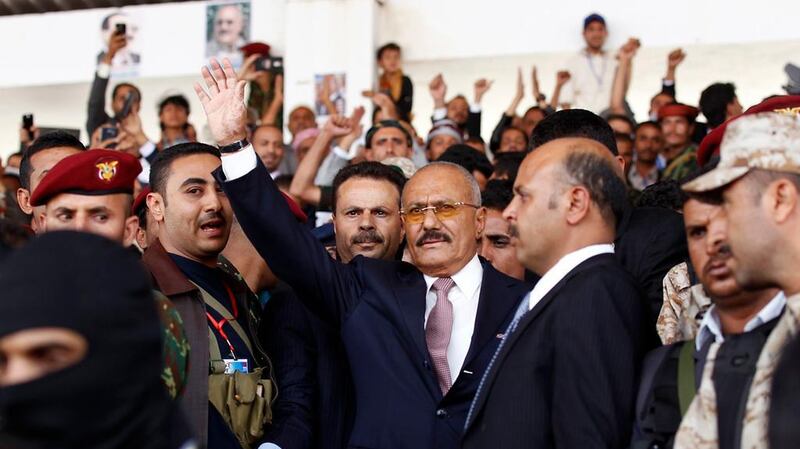Ali Abdullah Saleh spent his last days striving to bring peace to Yemen. It is his push for an end to war that led to his gruesome assassination on Monday. Saleh dominated Yemen for more than three decades, emerging as president of North Yemen in 1978 before becoming the head, in 1990, of the entire country. He reluctantly exited the presidency in 2012, just under a year after anti-government protests swept through Yemen. In a deal conceived in Saudi Arabia and endorsed by the permanent members of the United Nations and the Gulf Cooperation Council, Saleh was granted full immunity and could remain in his country. But instead of going into retirement, he made an energetic attempt to retake power. In this pursuit, he entered into a marriage of convenience with the Iranian-backed Houthi militias that has now culminated in his own treacherous death.
In the days ahead, there will be a multitude of reflections on the life of Saleh; but about the reason for his death there can be no dispute. He has been killed because he wanted, in his own words, to “turn the page”. After years of bloodshed, Saleh appears to have concluded that his alliance with the Houthis, instead of returning Yemen’s control to him, was going to annihilate Yemen. His last act was also the finest hour of his life. He defied the Houthis and their masters in Iran – and paid with his life.
__________________
Read more
[ Yemen's Houthis claim Saleh has been killed ]
[ Yemen crisis: Saleh's party confirms his death ]
[ Cheers for ex-president Saleh, jeers for the Houthis who tore Yemen apart ]
__________________
Yemen is now deadlier than ever before. “The militias of treason are finished and their leader has been killed,” declared the Houthi-controlled interior ministry in a triumphant statement. With this, the Houthis are signalling to any other potential peace seekers that they are now Sanaa’s rulers and defying them will have fatal consequences. This is a colossal blow to the prospects of peace that surfaced when Saleh broke from the Houthis. And it can only crush the already bruised spirits of the millions of Yemenis who have endured, and continue to endure, disease, deprivation and starvation under Houthi rule. Any hope of an abatement to their suffering is now indefinitely deferred.
What is happening in Yemen is inseparable from the wider security of the Middle East. For Yemen is not a standalone or self-contained nightmare but one of the many crises meticulously engineered as part of a larger project for regional hegemony by Iran. As HR McMaster, the US national security adviser, said on Saturday, Tehran is fueling and accelerating “cycles of violence” across the Middle East so that it “can take advantage of chaos and weak states to make them dependent on Iran”. Under the Houthis, Yemen has become a launching pad for Iranian-supplied missiles against Tehran’s perceived enemies, chief among them Saudi Arabia and the UAE, which have sacrificed blood and treasure in the fight to restore Yemen’s legitimate government. That fight, Saleh’s murder shows, cannot be given up.
Follow The National's Opinion section on Twitter





